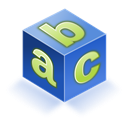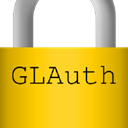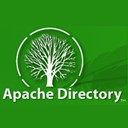Exploring the Best 389 Directory Server Alternatives for Robust LDAP Solutions
The 389 Directory Server is widely recognized as an enterprise-class, open-source LDAP server, renowned for its hardened, real-world use, extensive features, and support for multi-master replication. It's capable of handling thousands of operations per second and tens of thousands of concurrent users, making it a powerhouse for large-scale deployments. However, even with its robust capabilities and free availability, organizations often seek out a 389 Directory Server alternative for various reasons, including specific platform requirements, feature sets, or integration needs. This guide delves into some of the most compelling alternatives available today, helping you find the perfect fit for your directory service requirements.
Top 389 Directory Server Alternatives
While 389 Directory Server excels in performance and scalability, the landscape of directory services offers diverse options that may better align with unique infrastructure, security, or operational preferences. Let's explore some of the leading contenders that can serve as excellent substitutes.

OpenLDAP
OpenLDAP Software is a highly respected and widely adopted open-source implementation of the Lightweight Directory Access Protocol. Available for Free, Open Source, Mac, Linux, and BSD platforms, it provides a robust and flexible foundation for directory services, making it a strong 389 Directory Server alternative for those prioritizing open standards and cross-platform compatibility.

FreeIPA
FreeIPA is an integrated security information management solution that combines Linux (Fedora), 389 Directory Server, MIT Kerberos, NTP, DNS, and Dogtag (Certificate System). As a Free and Open Source solution primarily for Linux, it offers a comprehensive suite for identity and access management, making it an excellent 389 Directory Server alternative for organizations seeking an all-in-one security and directory solution.

Microsoft Active Directory
Microsoft Active Directory is a commercial, special-purpose hierarchical database designed for Windows environments. It is a cornerstone for many enterprise IT infrastructures, offering comprehensive user, group, and resource management. For Windows-centric organizations, it stands as a primary 389 Directory Server alternative, providing deep integration with Microsoft's ecosystem.

GLAuth
Go-lang LDAP Authentication (GLAuth) is a secure, easy-to-use, LDAP server with configurable backends, written in Go. It is a Free and Open Source solution for Linux, appealing to users who prefer lightweight, modern language-based applications with simplicity and performance in mind. GLAuth serves as an agile 389 Directory Server alternative for specific, often smaller-scale, authentication needs.

OpenDJ
OpenDJ is a directory server that implements a wide range of Lightweight Directory Access Protocol and related standards, including full compliance with LDAPv3. Available as Free and Open Source for Windows, Linux, and Self-Hosted environments, and built on Java, OpenDJ offers a robust and extensible solution for various directory service needs, making it a flexible 389 Directory Server alternative.

RazDC
RazDC is an active directory replacement built on CentOS and Samba4, offering support for Directory, DNS, DHCP, and NTP type services. As a Free and Open Source, Self-Hosted solution for Linux, RazDC is an excellent 389 Directory Server alternative for organizations looking for a robust, open-source active directory compatible solution with comprehensive service offerings.

ApacheDS
ApacheDS™ is an extensible and embeddable directory server entirely written in Java, certified LDAPv3 compatible by the Open Group. It is a Free and Open Source solution available for Mac, Windows, and Linux. Beyond LDAP, ApacheDS offers an embedded, server-side directory that can be a solid 389 Directory Server alternative, especially for developers and those needing an extensible Java-based solution.
Choosing the right 389 Directory Server alternative depends heavily on your specific organizational requirements, existing infrastructure, and long-term strategy. Whether you prioritize open-source flexibility, deep integration with a particular OS, lightweight design, or a comprehensive identity management suite, the options presented here offer compelling alternatives. We encourage you to explore each option further to determine the best fit for your unique needs, ensuring a secure, scalable, and efficient directory service.